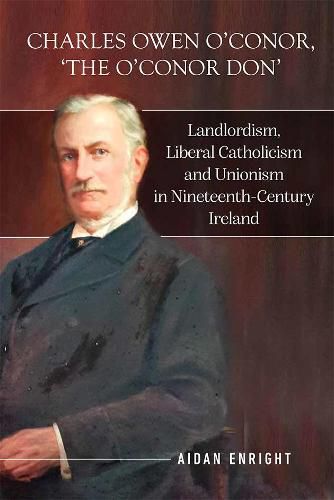Readings Newsletter
Become a Readings Member to make your shopping experience even easier.
Sign in or sign up for free!
You’re not far away from qualifying for FREE standard shipping within Australia
You’ve qualified for FREE standard shipping within Australia
The cart is loading…






This book uncovers the world of Charles Owen O'Conor, the O'Conor Don (1838-1906), a Catholic landlord and MP from County Roscommon. The scion of the last high king of Ireland and one of a long line of politically active O'Conors, he was destined for a life in politics and served as Liberal MP for County Roscommon between 1860 and 1880. In parliament, he pursued reforms in education, juvenile care, factory law, Sunday closing, the Irish language, and landownership. However, as a loyalist and a unionist, he was out of step with the mood and aims of popular Irish nationalism, especially on the issue of home rule. Indeed, what this book demonstrates is that although he was a devout Catholic and proud Irishman, his attachment to the union, the crown, and the empire ensured that he became an increasingly marginal figure in Irish politics between 1880 and his passing in 1906.
$9.00 standard shipping within Australia
FREE standard shipping within Australia for orders over $100.00
Express & International shipping calculated at checkout
Stock availability can be subject to change without notice. We recommend calling the shop or contacting our online team to check availability of low stock items. Please see our Shopping Online page for more details.
This book uncovers the world of Charles Owen O'Conor, the O'Conor Don (1838-1906), a Catholic landlord and MP from County Roscommon. The scion of the last high king of Ireland and one of a long line of politically active O'Conors, he was destined for a life in politics and served as Liberal MP for County Roscommon between 1860 and 1880. In parliament, he pursued reforms in education, juvenile care, factory law, Sunday closing, the Irish language, and landownership. However, as a loyalist and a unionist, he was out of step with the mood and aims of popular Irish nationalism, especially on the issue of home rule. Indeed, what this book demonstrates is that although he was a devout Catholic and proud Irishman, his attachment to the union, the crown, and the empire ensured that he became an increasingly marginal figure in Irish politics between 1880 and his passing in 1906.